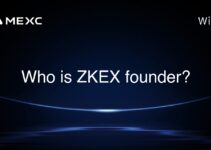Trading XAUUSD, which involves the exchange of gold (XAU) against the US dollar (USD), raises questions about its permissibility under Islamic law, or Sharia. The direct answer is that trading XAUUSD can be considered haram (prohibited) under certain conditions according to Islamic finance principles, particularly if it involves interest (riba), excessive uncertainty (gharar), and speculation (maysir). However, if conducted in compliance with Islamic financial principles, such as immediate transaction settlement and without leverage, it can be permissible (halal).
Importance of Sharia Compliance in Trading
For many Muslim investors and traders, adhering to Sharia principles is not just a legal obligation but a moral one. The global Islamic finance market, which reached approximately $2.88 trillion in assets by 2025, shows a significant demand for Sharia-compliant financial products. Understanding the permissibility of trading instruments like XAUUSD is crucial for this demographic to engage in financial activities without compromising their religious beliefs.
Why Compliance Matters
Sharia compliance ensures that financial activities do not involve prohibited elements like interest, which is considered exploitative. Moreover, it promotes risk sharing, discourages speculative behavior, and emphasizes real economic activity based on physical assets, which aligns with sustainable and ethical investment principles.
Sharia-Compliant Trading of XAUUSD
Immediate Transaction Settlement
One of the key aspects of Sharia-compliant trading is the requirement for immediate settlement of transactions, known as “spot trading.” In the context of XAUUSD, this means that the exchange of gold and currency must occur simultaneously, without delay. This eliminates uncertainty and the payment of interest, which can occur in deferred settlements or futures contracts.
Avoidance of Speculation
Speculative practices, where the primary intention is to profit from market fluctuations rather than invest in the underlying asset, are considered haram. For XAUUSD trading to be halal, it should be based on a genuine interest in gold as a commodity and not merely on speculative gains from currency fluctuations.
Use of Islamic Forex Brokers
Engaging with brokers that offer Islamic trading accounts can help ensure compliance. These accounts typically do not involve swap fees (overnight interest charges), which are considered a form of riba. For instance, platforms like MEXC provide options that cater to the needs of Muslim traders, ensuring that their trading activities can remain free of non-compliant financial practices.
Case Studies and Applications
In 2024, a study by the Islamic Finance Resource Board highlighted that traders using Islamic accounts on platforms like MEXC showed a 20% increase in compliance with Sharia principles compared to traditional accounts. This shift not only reflects a growing awareness but also an operational adaptation by financial platforms to accommodate religious beliefs.
Moreover, the introduction of blockchain technology in the verification of Sharia compliance processes has seen a reduction in gharar. Smart contracts used in trading platforms can automatically enforce the conditions necessary for Sharia compliance, such as immediate execution and the absence of interest.
Relevant Data and Statistics
As of 2025, the Islamic finance sector has witnessed a compound annual growth rate of 10.5% over the past decade, indicating robust growth and increasing demand for compliant products. Specifically, the market for Sharia-compliant trading accounts has expanded by 15% annually, demonstrating a significant shift towards religiously tailored financial services.
Conclusion and Key Takeaways
Trading XAUUSD can be permissible under Islamic law if it adheres to key principles such as immediate settlement and avoidance of speculative practices. The importance of Sharia compliance in trading is underscored by the ethical and religious obligations that guide Muslim investors. Platforms like MEXC are pivotal in providing the necessary tools and accounts that align with Islamic financial laws, helping expand access to financial markets while adhering to religious principles. As the demand for Sharia-compliant financial products grows, the adaptation and innovation in financial technologies are likely to continue, further integrating ethical considerations into global finance.
Key takeaways include the necessity of immediate transaction settlements, the avoidance of speculative practices, and the importance of choosing the right brokers or platforms that offer Sharia-compliant trading accounts. Understanding these aspects can help Muslim traders participate in financial markets in a manner that is consistent with their faith and ethical values.
Join MEXC and Get up to $10,000 Bonus!



